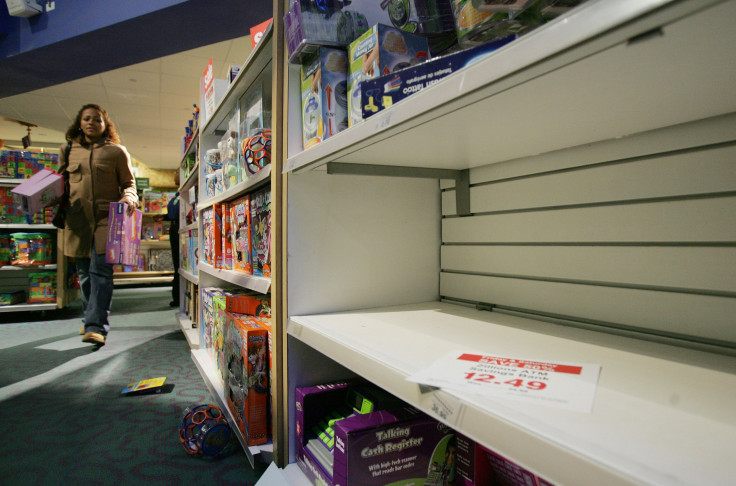How A Revived Toys R Us Can Take Back The Toy Market

The toys are back in town.
Top lenders to bankrupt retailer Toys R Us have canceled plans to auction off the chain's intellectual property, name, and other remaining assets. Now the company's debtholders plan to open a new company that will profit from licensing the Toys R Us name globally, develop a private brands business, and open new retail stores in the United States, Reuters reports.
And while details remain vague as to its retail plans, the revived company will be entering a market that has gotten more crowded since it left. A number of companies, including J.C. Penney and Party City (NYSE:PRTY), have added toys to their stores, while Target (NYSE:TGT) and Walmart (NYSE:WMT) have expanded their offering in that department in some cases.
This article originally appeared in The Motley Fool.
Still, despite the crowded field that also includes Barnes & Noble (NYSE:BKS) and, of course, Amazon, there may be room for a different kind of Toys R Us.
A new model
Before Toys R Us closed, its management wanted to pursue a new, more interactive model built around stores that were destinations for customers. A lack of money and debt payments from its leveraged buyout stopped that from happening, as the chain was barely able to keep the lights on for years before it closed, let alone invest in a major overhaul.
The new Toys R Us could take what the old company had planned to do and go even further. It could attract customers by building stores around play. Doing that would require having gameplay areas for board games and collectible games, video game areas, and places where consumers can try new toys like drones or other gizmos.
These stores would also have to offer game days and regular play for games aimed at both adults and kids. Card games like Pokemon and Magic: The Gathering can attract dozens of people to multi-hour weekly gameplay sessions or tournaments and those players will buy merchandise, snacks, and drinks. The same is true for board game fans and, in some cases, video game players.
Every major player that either helped send Toys R Us to bankruptcy or have since entered the toy market simply sell toys on shelves. Target, Walmart, and even Barnes & Noble -- which could have followed a more interactive strategy -- lack well-trained sales personnel and opportunities for play.
The bookstore chain has sponsored one-off game days, but it has left the regular weekly play to comic book stores. Target and Walmart literally do nothing beyond put toys on their shelves, and that's likely what will happen at Party City's planned pop-up seasonal toy stores.
A big niche
Toys R Us could rebuild its brand around the idea that it's a place for fun. It should be exciting for kids (and some adults) to go to the new Toys R Us as it was for younger generations. The difference is simply having toys is no longer enough of a draw. The revised chain needs to be the place for toys and gameplay with a well-trained staff who can help you pick a birthday gift or tell you if your child is old enough to play Settlers of Catan or Cards Against Humanity.
Toys R Us could make its comeback by being a toy store, not a store that sells toys. It's a model that works at independent toy shops (and, to a lesser extent, comic/novelty stores), and it's a big niche that has been left open by the would-be claimers of Toys R Us' former throne.
John Mackey, CEO of Whole Foods Market, an Amazon subsidiary, is a member of The Motley Fool's board of directors. Daniel B. Kline has no position in any of the stocks mentioned. The Motley Fool owns shares of and recommends Amazon. The Motley Fool has a disclosure policy.




















